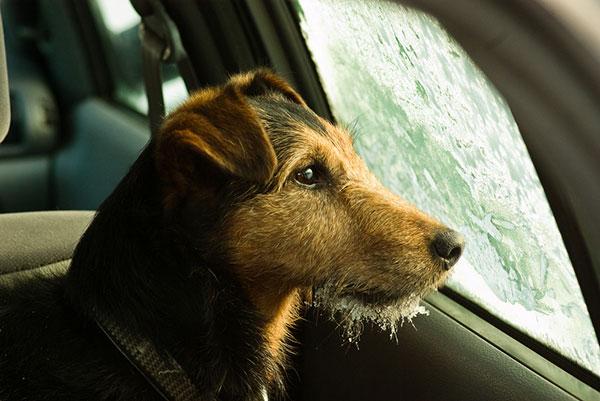
Cold Cars and Pets
Tuesday, January 16, 2018
We all know it’s never okay to leave children or pets in a hot car. The same holds true for cold cars.
According to the American Veterinary Medical Association and The News Wheel, a car rapidly cools down in cold weather. It becomes like a refrigerator and can quickly chill your pet.
Pets that are young, old, ill or thin are particularly vulnerable to cold environments.
Cold temperatures affect dogs differently and can cause hypothermia. A short haired dog will definitely get colder faster.
Also, dogs with medical conditions like kidney or heart diseases will not do well in a cold car. Dogs that are not outdoors frequently will not like being trapped inside a potentially freezing car.
The best course of action during the winter is to leave your furry family member home where it is safe and warm. However, if circumstances dictate that you must bring your pet, here are some things you can do to help keep your pet safe:
- Limit your outings so your pet spends the shortest possible time in the car.
- Bring some blankets to lie down in the car where your pet can burrow down to stay warm.
- Leave your windows cracked to avoid suffocation.
- Purchase or make an insulated kennel cover to help keep your pet warm and water to stay liquid.
After your pet has been out in the cold, pay attention to how your pet is behaving. Shivering, anxiety, weakness, slowed movements and searching for someplace to burrow are signs of hypothermia.
If your dog exhibits these symptoms, get your dog inside and warm as soon as possible and contact your veterinarian immediately.
The best advice is never leave animals in a cold car. Limit car travel to that which is absolutely necessary and never leave pets unattended in the vehicle.
by Elisabeth J. Giedt, DVM
Veterinary Viewpoints is provided by the faculty of the OSU Veterinary Medical Hospital. Certified by the American Animal Hospital Association, the hospital is open to the public providing routine and specialized care for all species and 24-hour emergency care, 365 days a year.
